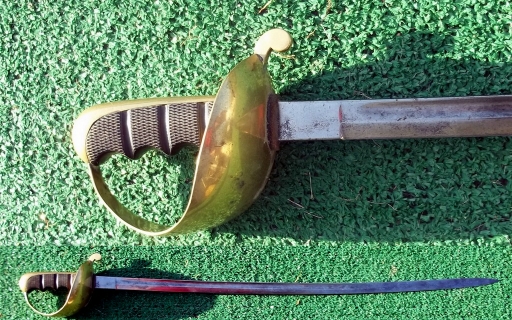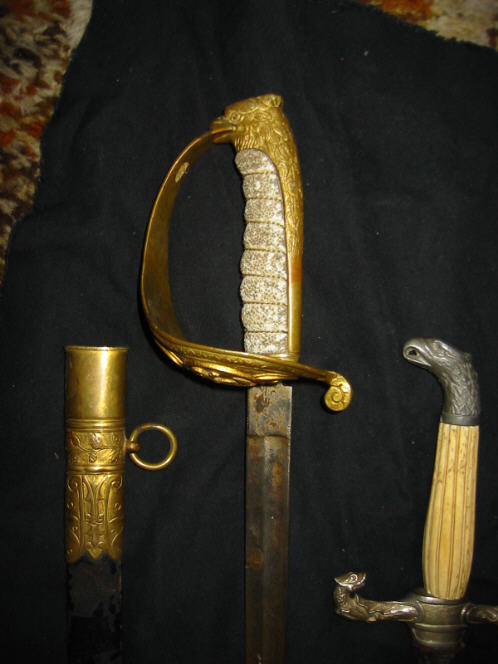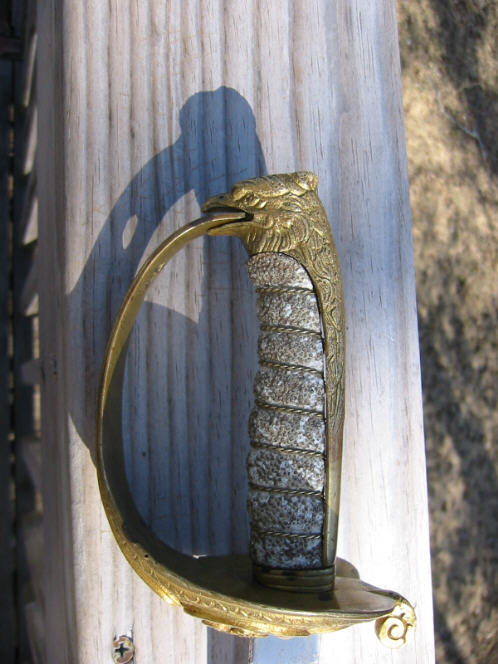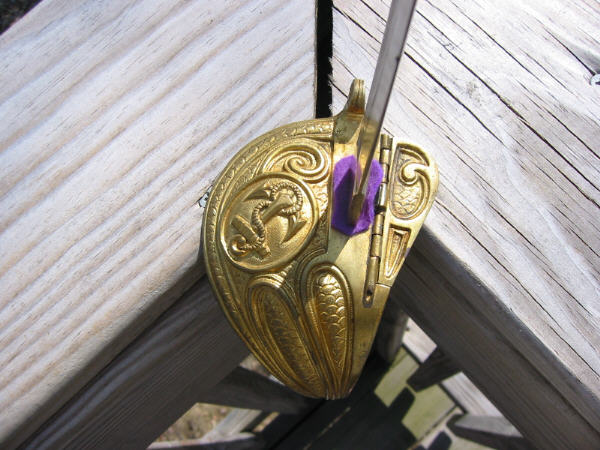Is there any value to this or is it junk ?


| Jeffrey Faulk wrote: |
| Judging from the grip which appears to be some sort of checkered plastic under the brass, I'd take a stab at a fairly recent (no earlier than the 50s) dress/ceremonial sword of some sort, possibly European. Are there any other markings or etchings upon the blade or grip? And have you cleaned it (the brass looks rather bright)? |
| Quote: |
| Founded as F. Horster in 1850.
Became E. & F. Horster in 1870. Bankrupt in 1996. |
| Ozsváth Árpád-István wrote: |
| Feels like early 20th century. Ebonite was available since the 1860s, but plastic grips on swords were used only from the WWI period. It might be an earlier pattern manufactured later.
@Glen: Can you please post some pictures with your Romanian sword? |


